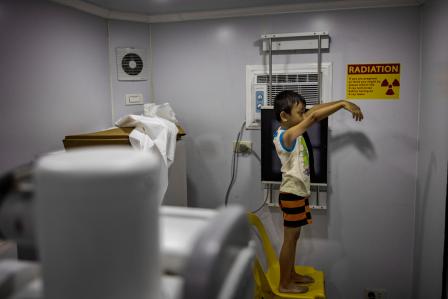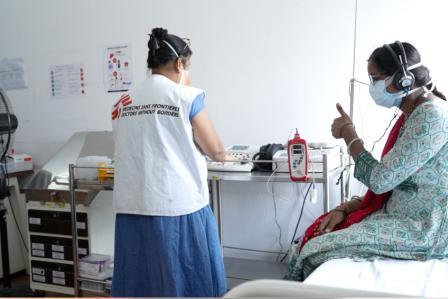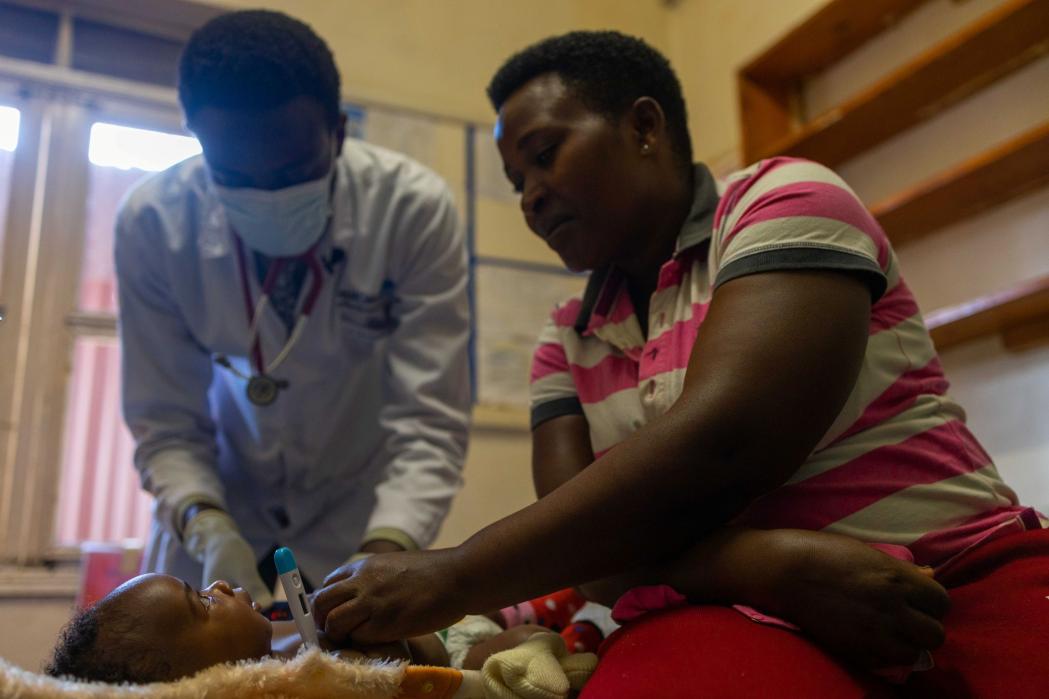
Treatment decision algorithms, a hope for the diagnosis of tuberculosis in children. Uganda © Stuart Tibaweswa /Epicentre
Paris, 19 March 2025: Ahead of World TB Day, Doctors Without Borders / Médecins Sans Frontières (MSF) calls on all countries and international donors to prioritise and ensure sustained investments for diagnosing, treating, and preventing tuberculosis (TB) for all - especially children, who remain the most vulnerable.
Every 3 minutes, a child dies of TB. The World Health Organization (WHO) estimates that 1.25 million children and young adolescents (0-14 years) fall ill with TB each year, but that only half of these children are diagnosed and treated. In 2022, WHO revised its guidance for the management of children and adolescents with TB, which if adopted and implemented, could drastically improve care and save lives. The Doctors Without Borders project TACTiC - Test, Avoid, Cure TB in Children, is implementing the new WHO recommendations in Doctors Without Borders programmes in over a dozen countries in Africa and Asia and has already documented an increase in children diagnosed with TB and put on appropriate treatment.
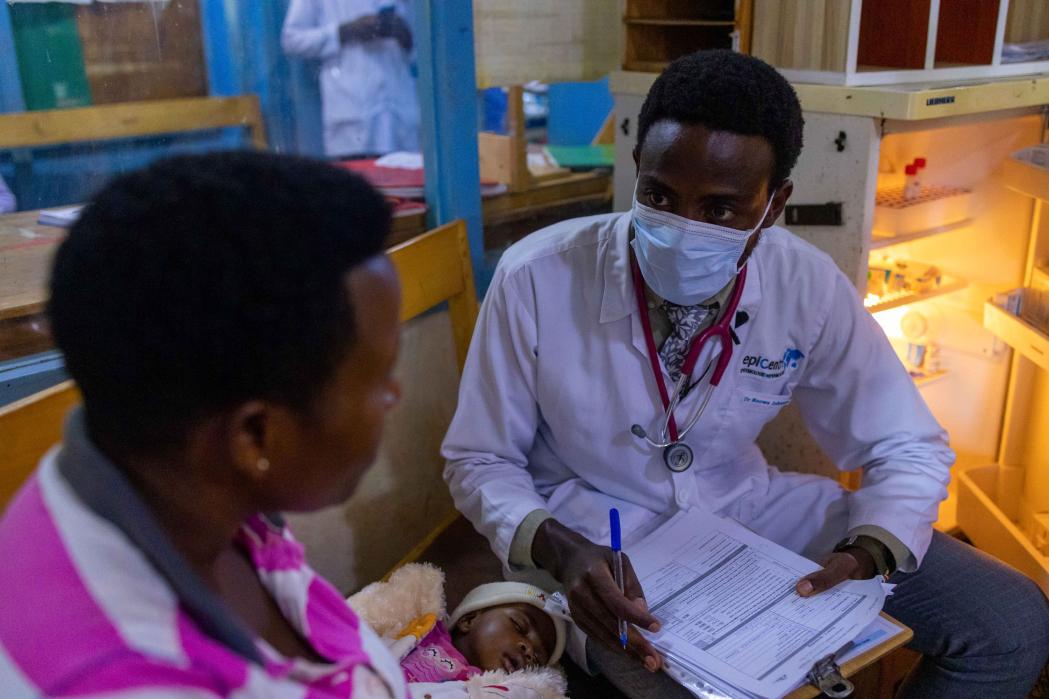
Every three minutes, a child dies of tuberculosis (TB), even though treatment is available. In children, under-diagnosis is a major obstacle to effective treatment. New WHO recommendations, including treatment decision algorithms, could change all that. As part of the TACTiC project, launched in 2023, Doctors Without Borders is implementing these recommendations in 12 countries in Africa and Asia. In parallel, Epicentre is conducting a study in five of these countries to document their implementation, assess their diagnostic performance, feasibility and acceptability. Mbarara, Uganda © Stuart Tibaweswa /Epicentre
However, Doctors Without Borders is gravely concerned about the recent United States (US) funding cuts. The US is the largest financial contributor for TB programmes, accounting for half of all international and bilateral donor funding, according to the WHO.
Doctors Without Borders teams in Sindh province, Pakistan, are witnessing the US funding cuts leading to the disruption of community-based services, which play a key role in a country that has a high burden of TB, especially in active screening of people in the community which increases the diagnosis , the screening of families at high risk and the provision of TB preventive treatment for children.
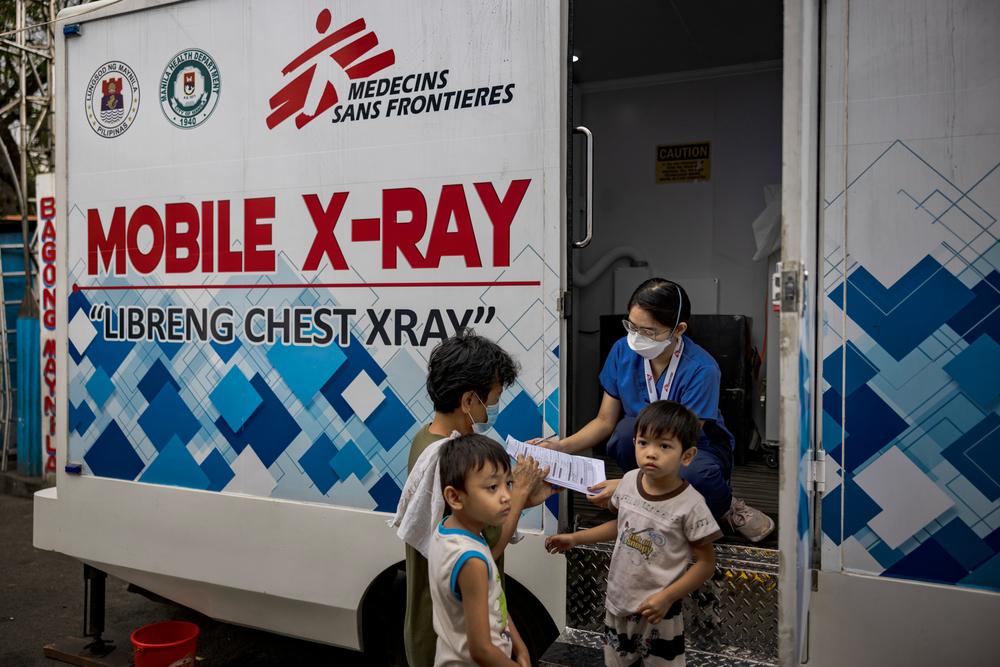
Agustina went to a Doctors Without Borders active case-finding activity in Manila, the Philippines, and found out she had TB. She took her grandsons Clark and Ion to be screened too. Tondo, Manila, Philippines, March 2023 © Ezra Acayan
“Children are already highly vulnerable to TB, and we are worried that the US funding cuts that have impacted the community-based services will have a disproportionate effect on children, leading to more children with TB and more avoidable deaths,” said Dr Ei Hnin Hnin Phyu, Medical Coordinator with Doctors Without Borders in Pakistan. “We cannot afford to let funding decisions cost children's lives."
Children with TB are often excluded from research and development trials being carried out on new tools for TB. The recent US funding cuts have halted numerous clinical trials, setting back TB research and innovation—with many of them being critical for children with TB. This is a major step back in the fight against TB, as it delays the development of much-needed diagnostics and treatments for children. Doctors Without Borders calls on the pharmaceutical industry and international donors to ensure sustained investments in the development and evaluation of medical tools that can improve TB care for children.
Doctors Without Borders is the largest non-governmental provider of TB treatment worldwide and has been involved in TB care for 30 years, often working alongside national health authorities to treat people in a wide variety of settings, including conflict zones, urban slums, prisons, refugee camps and rural areas. Doctors Without Borders has also been involved in efforts to find shorter and safer drug-resistant TB treatment regimens through 3 clinical trials: TB-PRACTECAL, endTB and endTB-Q. The WHO recommendations for four 6 and 9-month regimens (including BPaLM and BPaL) to treat DR-TB was prompted by evidence mainly from the TB-PRACTECAL and endTB trials.
Doctors Without Borders is conducting an integrated project TACTiC - Test, Avoid, Cure TB in Children - that aims to implement the new WHO recommendations to improve the management of TB in children in Doctors Without Borders programmes in over a dozen countries in Africa and Asia. Additionally, this project strives to demonstrate the validity and feasibility of the recommendations in different country contexts through operational research and advocate for their widespread implementation across national health systems.
